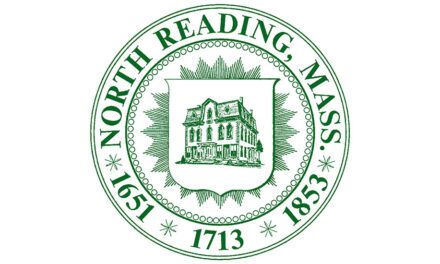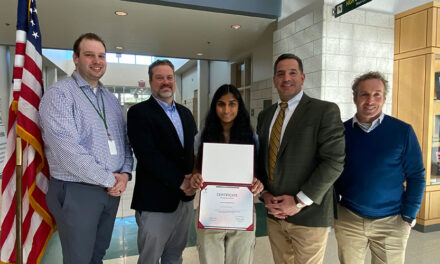Published in the July 28, 2016 edition
By DAN TOMASELLO
NORTH READING — The School Committee voted unanimously on Monday to oppose Question 2 on the November ballot, which would lift the cap on charter schools.
The school board voted unanimously to approve a resolution by the Massachusetts Association of Schools (MASC) opposing Question 2. The School Committee will send a letter to state Rep. Brad Jones (R-North Reading), state Sen. Bruce Tarr (R-Gloucester) and Gov. Charlie Baker outlining the committee’s opposition to Question 2.
If voters approve Question 2, the state Board of Elementary and Secondary Education (BESE) would be allowed to approve up to 12 new charter schools or expand enrollment in existing charter schools each year. It would also expand statewide charter school enrollment by up to one percent of the total statewide public school enrollment each year.
These new charter schools and enrollment expansions would be exempt from existing limits on the number of charter schools, the number of students enrolled in them, and the amount of local school districts’ spending allocated to them.
Additionally, if BESE received more than 12 applications in a single year the board would be required to give priority to proposed charter schools or enrollment expansions in districts where student performance on statewide assessments was rated in the bottom 25 percent of all districts during the previous two years. Charter schools located in areas where there is demonstrated parent demand for more public school options would be given preference as well.
New charter schools and enrollment expansions approved per Question 2 would be subject to the same approval standards as existing charter schools. The law would also apply to existing recruitment, retention and multilingual outreach requirements that currently apply to some charter schools.
Schools authorized under Question 2 would be subject to annual performance reviews according to standards established by BESE. If passed, it would take effect Jan. 1, 2017.
Supporters of Question 2, including Baker and the PAC Great Schools Massachusetts, argue the proposed law would ensure children have the opportunity to attend a charter school in their community. Supporters also argue enacting this law would reduce the number of families who are stuck on public charter school waiting lists.
Opponents of Question 2, including the Massachusetts Teachers’ Association, argue the law would have a negative impact on municipal finances. According to the PAC Save Our Schools, the FY 2017 state budget “seriously underfunds charter school reimbursements to local school districts, costing them $57 million next year” in addition to “the over $400 million that will be lost to charter schools even with full reimbursement.”
While School Committee member Mel Webster said expanding charter schools is not an issue impacting North Reading, he said Question 2 would have negative ramifications on other school districts.
“I am not opposed to charter schools for the sake of being opposed to charter schools,” said Webster. “I am opposed to them for a couple of reasons. I don’t think they share the burden of educating all students that public schools do. I also think the funding mechanism is not right. The issue is (public schools) lose $5,000 for every child that goes out of the district. What people don’t understand is they think if 10 kids leave a district, you are losing $50,000 and you can get rid of a teacher. But you can’t because it might be 10 kids in 10 different grades and you are still paying $60,000 to $80,000 for a teacher, and you are not getting any reimbursement.”
School Committee Vice Chairman Jerry Venezia agreed the charter school funding formula hurts public schools and passing Question 2 would compound the problem.
School Committee Chairman Cliff Bowers said he opposes charter schools because taking high performing students out of public schools and enrolling those students in charter schools hurts the school those students left behind.
“Each one of those special kids that gets promoted into a charter school by a parent that has enough initiative to get up and submit an application is taking that valuable resource out of a public school and diminishing the public school,” said Bowers. “I think that is an inappropriate thing to do.”
Webster acknowledged “there are some amazing performances at some charter schools,” but this is the case because the vast majority of charter schools only enroll high performing students and utilize a selective application and enrollment process.
Bowers agreed.
“They take the cream of the crop,” said Bowers. “I think that is wrong for society because there are a whole bunch of kids in regular schools who didn’t get that extra advantage.”
Webster noted supporters of Question 2 will be spending quite a bit of money in order to pass the ballot question this fall.
“There is a lot of money behind it,” said Webster. “It’s going to be a difficult item to defeat.”
Resolution
According to the MASC resolution backed by the School Committee, “public education was meant to be the melting pot of our diversity, a place where students from varied socio-economic backgrounds, ethnicities and lived experiences could come together and help build a stronger nation and a meaningful democracy.”
“All of our students deserve high quality public schools that teach the whole child, providing enrichment and addressing social and emotional needs in addition to core academic subjects,” reads the resolution. “Local accountability for our public schools is necessary to ensure that schools are responsive to the needs of their communities.”
The resolution also states the financing mechanism for charter schools is “biased heavily in favor of charter schools and severely compromises funding to public schools, resulting in a loss of funds that is undermining the ability of districts to provide all students with the educational services to which they are entitled.”
“Commonwealth charter schools are often approved over the objections of a majority of community residents and their elected officials, and are not accountable to local officials once they are approved,” reads the resolution. “Commonwealth charter schools often fail to serve the same proportion of special needs students, low-income students and English language learners as the districts from which they receive students, and often use high suspension rates and other counseling methods to drive out students they don’t want to serve.”
The resolution also states that while charter schools claim that “they help close the achievement gap, they are, instead, accentuating that gap by selectively serving students who are generally performing well and are thus creating separate and unequal opportunities for success.”
“Our focus as a state should be on creating excellent public schools for all students and striving to achieve the primary mission of public education — educating all young people to be effective citizens in a democracy,” reads the resolution.
“Lifting the cap on charter schools would greatly worsen the problems and lead to a most costly and divisive two-track school system.”



